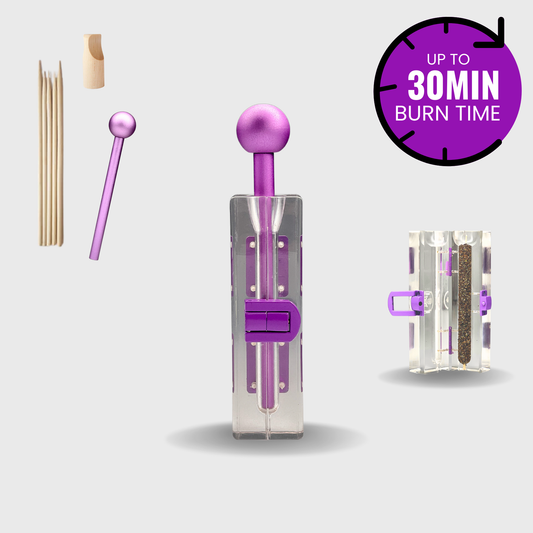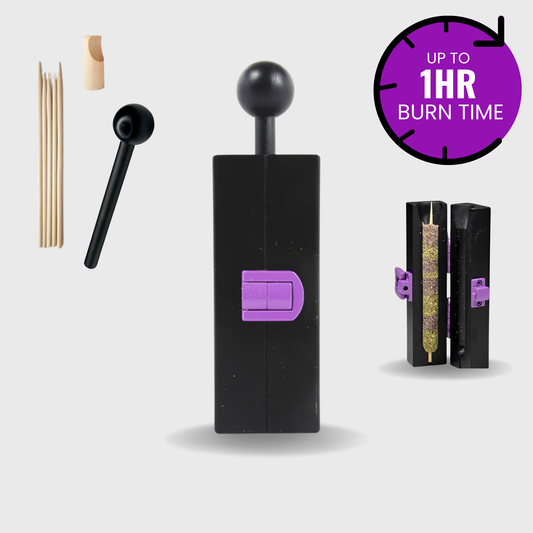- Over 50 million Americans suffer from sleep disorders, drastically impacting health.
- CBD may reduce sleep anxiety and improve REM continuity without intoxication.
- THC can help people fall asleep faster, particularly those with PTSD or sleep latency issues.
- CBN shows potential as a non-intoxicating cannabinoid that supports deep sleep.
- High doses or improper use of cannabinoids can cause grogginess or diminished effectiveness over time.
If you’ve ever tossed and turned through the night, you’re not alone — nearly one-third of your life is spent sleeping, yet millions struggle to get quality rest. As natural remedies become more popular, CBD, THC, and CBN are becoming known as interesting options instead of typical sleep medications. But how do these cannabinoids actually help sleep, and which one might be the best choice for you?

The Sleep Crisis in America
The current world is facing a serious sleep problem. Between 50 to 70 million U.S. adults experience some kind of sleep disorder, be it insomnia, sleep apnea, restless leg syndrome, or ongoing tiredness from disturbed rest cycles. Even worse, these problems do more than just make you irritable — they are strongly connected to lasting health consequences, such as greater chances of stroke, anxiety, heart disease, obesity, and brain cell damage National Heart, Lung, and Blood Institute.
According to the 2022 Gallup survey, just 32% of U.S. adults said they get “excellent” or “very good” sleep, and one in three people stated they regularly do not get enough rest to maintain basic physical and mental health. Significant lifestyle changes — like screen use, work stress, poor diets, and lingering anxiety from the COVID-19 period — have made this situation worse. Therefore, Americans are increasingly trying plant-based sleep options like CBD for sleep, THC for sleep, and increasingly, CBN as a specific CBN sleep aid.

Cannabinoids + Sleep: The Science
To understand how CBD, THC, and CBN assist with sleep, let’s first consider the human endocannabinoid system (ECS). The ECS is a control network located throughout the brain and body. It has important roles in balancing daily cycles, managing emotional stress, pain feeling, appetite, body temperature control, and — importantly — sleep cycles.
Cannabinoids work with CB1 and CB2 receptors in the ECS. CB1 receptors, mostly found in the brain and nervous system, are especially important for sleep. When cannabinoids connect to these receptors, they can raise levels of adenosine (a brain chemical that encourages sleepiness) and lower the activity in parts of the brain related to alertness and being awake.
Cannabinoids are not a single answer for everyone. Different compounds affect the ECS in different ways
- CBD works in an indirect manner by stopping enzymes that break down endocannabinoids and changing receptor activity.
- THC directly connects to CB1 receptors, creating mind-altering effects along with sleep-promoting qualities.
- CBN connects weakly to CB1 receptors but seems to start other sleep-promoting systems, particularly when used together with other cannabinoids.
The main point is: these molecules act as biochemical “adjusters,” gently pushing the body's internal state toward calm, balance, and readiness for sleep when your natural rhythms are not working correctly.

CBD for Sleep
CBD (cannabidiol) is a non-mind-altering compound mainly from hemp. It has become very popular for its ability to encourage relaxation, lower swelling, and improve positive mood control — all without the “high” feeling linked to THC.
When it comes to sleep, CBD works in several important ways
CBD Reduces Anxiety
Anxiety and constant worrying are two of the most typical causes of sleep problems. By working with serotonin receptors (5-HT1A) and lowering cortisol levels, CBD has been shown to calm the central nervous system. This makes it easier to fall asleep, especially for those with general anxiety or stress from certain situations.
A 2019 study in The Permanente Journal found that 66.7% of study participants said they slept better with CBD use after just one month.
CBD Improves Sleep Structure
Sleep is about how good it is, not just how long it is. CBD may help keep deeper stages of sleep (like N3) and support ongoing REM cycles, which are key for memory storage and emotional recovery.
CBD Reduces Sleep Interruptions
Users often report fewer times waking up at night when taking CBD, possibly because of its effect on body temperature control, muscle tightness, and pain relief.
CBD for sleep is often available in full-spectrum, broad-spectrum, or CBD isolate forms. Products may have added botanicals like valerian root, chamomile, lavender, or helpful supplements like melatonin for added benefits.

THC for Sleep
THC (tetrahydrocannabinol) is the main mind-altering compound in cannabis, and it has long been linked to sleep-inducing effects. But there’s more to THC than just “getting high.”
THC Reduces Sleep Latency
Sleep latency, which is the time it takes to fall asleep, can be reduced by THC. This can be very helpful for people with insomnia or post-traumatic stress disorder (PTSD), where falling asleep can take a very long time.
THC Suppresses REM Sleep
Interestingly, while REM sleep is important, too much intense dreaming — especially nightmares — can disturb sleep stability. THC seems to reduce too much REM, which may help PTSD sufferers who have night terrors.
THC and Morning Grogginess
While low amounts can help you get to sleep, too much THC can have a two-phase effect — meaning larger amounts may actually get in the way of deep sleep and cause tiredness the next morning or sleepiness during the day. That’s why starting with small amounts (2–5mg) is often suggested for new users.
THC-based products are usually available as indica-dominant edibles, tinctures, or vapes. Always begin with a low amount and change your dose carefully to avoid building up tolerance or having side effects.
CBN: The Cannabinoid Designed for Dreamland?
CBN (cannabinol) is a changed form of THC, created when THC gets older and breaks down. Though slightly mind-altering, CBN is not as strong as THC — making it especially appealing for those wanting sleep help without strong mind changes.
Sedative Synergy
Early study suggests CBN may have stronger sleep-starting effects when put together with other cannabinoids. A rodent study in 1975 found that CBN combined with THC made sleep last longer than THC alone.
Neuroprotective Benefits
Early studies suggest that CBN may also act as a neuroprotectant — a role that could help older adults who have sleep problems as part of mental decline.
Still Under Study
More studies on humans are needed to fully prove CBN’s effectiveness, though stories from users are promising. Currently, it is increasingly put into sleep formulas along with CBD and low-dose THC to make a balanced, sleep-heavy mix — CBN sleep aids are now being promoted as the main cannabinoid for deep, uninterrupted sleep.

Choosing the Right Cannabinoid Sleep Aid
Choosing between THC, CBD, and CBN for sleep comes down to each person's body, sensitivity, and sleep problems. Here are some general suggestions
- Trouble falling asleep? Begin with low-dose THC or fast-acting CBD tinctures.
- Waking up often? CBN-heavy or products that release slowly are best.
- Wanting to avoid mind-altering effects? Choose THC-free (broad-spectrum or isolates).
- Need help for a long time? Change products sometimes and avoid daily high-dose THC to prevent tolerance.
Always check product labels, confirm third-party lab tests (COAs), and think about talking to a doctor before beginning a new cannabinoid plan.

Can Cannabinoids Replace Melatonin?
Cannabinoids do not replace melatonin, but they work well with it.
Melatonin acts like a daily time signal: it tells your body when it’s dark and time to rest. Cannabinoids help sleep by reducing the mind-body blocks — pain, stress, swelling, overthinking — that often keep people awake.
Many top sleep aids now combine low-dose melatonin (usually 2–5mg) with cannabinoids like CBD and CBN to make sleep-promoting mixes that work together. Just avoid high-dose melatonin (over 10mg) or using it daily for long periods, as this can reduce your body’s natural production.

Best Practices for Using THC, CBD, or CBN for Sleep
To get the most benefits from cannabinoids in your sleep routine, follow these best practices
- Take 30–60 minutes before bed to allow it to be absorbed (especially for edibles).
- Begin with a small amount, increase slowly — THC in particular can have different effects on each person.
- Do not mix with alcohol or sleep medicines unless advised.
- Use regularly but carefully — think about 5 days on, 2 days off to avoid building up tolerance.
- Combine with healthy habits like meditation, stretching, aromatherapy, or writing in a journal.

Better Sleep Starts with Better Habits
Even the best CBD for sleep will not completely make up for bad sleep habits. To make sure you are successful
- Keep a regular bedtime and wake time — even on weekends.
- Avoid screens and blue light use at least 60 minutes before bed.
- Keep your bedroom environment cool (~65°F), dark, and quiet.
- Avoid heavy meals, caffeine, or alcohol within 2-3 hours of bedtime.
- Practice a “digital sunset” where you turn off devices and mentally relax.
- Create a nightly routine — whether that’s reading, breathwork, or having a calming cannabinoid gummy.
Sleep Smarter, Not Harder
Sleep is not just a luxury; it’s a need — a base for memory, immunity, mood, and clear thinking. Luckily, compounds like CBD, THC, and CBN are proving to be helpful in the search for restful sleep. With options now including gummies, capsules, tinctures, and vape pens, the market has many ways to adjust support to your exact needs.
So whether you’re wanting a non-mind-altering calm with CBD, trying to fall asleep quickly with THC, or wanting the deep, uninterrupted help of a CBN sleep aid, be confident: better nights are possible.
Citations
- Gallup. (2022). Sleep in America: 2022 Report. https://www.gallup.com/analytics/390536/sleep-in-america-2022.aspx
- National Heart, Lung, and Blood Institute (NHLBI). (n.d.). How much sleep is enough? https://www.nhlbi.nih.gov/health/sleep-deprivation/how-much-sleep
- Sleep Foundation. (n.d.). Cannabis and Sleep: Is It Helpful? https://www.sleepfoundation.org/sleep-aids/cannabis-and-sleep
- Healthline. (n.d.). Can cannabis help you sleep? https://www.healthline.com/health/medical-marijuana/cannabis-for-sleeping




